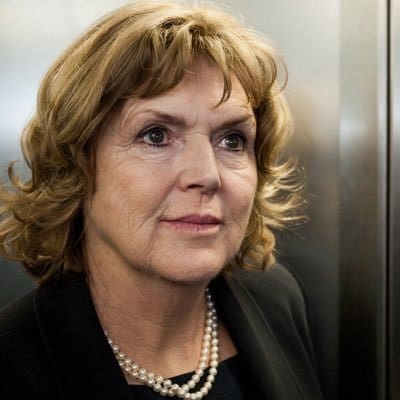Saied has labeled these individuals as “receiving huge amounts of funding from abroad” and “mostly traitors and foreign agents.”
Migrant rights defenders in Tunisia have faced arrests, smear campaigns, and a broader crackdown. A UN expert has defended these activists, stating that the crackdown is a clear indication of Tunisia’s backsliding on its commitment to protecting human rights.
Mary Lawlor, the UN Special Rapporteur on the situation of human rights defenders, expressed her concern in a statement. “It is appalling to hear official statements accusing those who help migrants, asylum seekers and refugees of being traitors and foreign agents,” she said. Lawlor warned that this situation could lead to fear, stigmatization, and the suspension of vital activities, leaving vulnerable individuals, particularly those from sub-Saharan Africa, in precarious conditions.
In early May, following a meeting between the interior ministers of Tunisia, Algeria, Libya, and Italy to discuss irregular migration, Tunisian security forces expelled hundreds of migrants and refugees from the country. These included women, children, and asylum seekers who had sought refuge at the offices of the UN refugee agency (UNHCR) and the International Organization for Migration (IOM).
The arrest and detention of Abderrazek Krimi and Mustafa Djemali, respectively the project director and head of the Tunisian Refugee Council (TRC), followed shortly after. They were questioned about the origin of their organization’s foreign funding before being taken into custody and accused of illegally sheltering people in Tunisia.
President Saied, without directly naming the two human rights defenders or the Truth and Reconciliation Commission, accused the leaders of organizations assisting “illegal migrants” from sub-Saharan Africa of “receiving huge funds from abroad” and being “mostly traitors and foreign agents.”
In contrast, the Truth and Reconciliation Commission, working with the UNHCR, launched a call for proposals from hotels to accommodate 57 unaccompanied migrant children from Sfax in Tunis. This initiative sparked a smear campaign in the media, claiming that hosting Africans in Tunisia threatened the country’s national security.
Lawlor called for the release and better treatment of the two migrant rights defenders, stating that they were doing legitimate work and being held without trial in overcrowded and unsanitary conditions, in violation of international human rights conventions that Tunisia has ratified.
ODL/Sf/ac/fss/abj/APA


